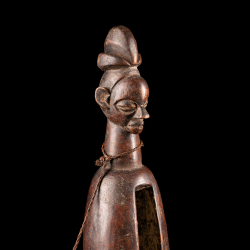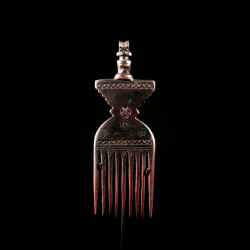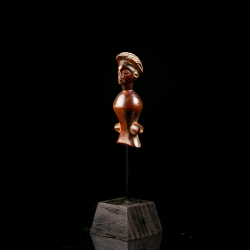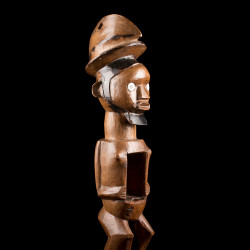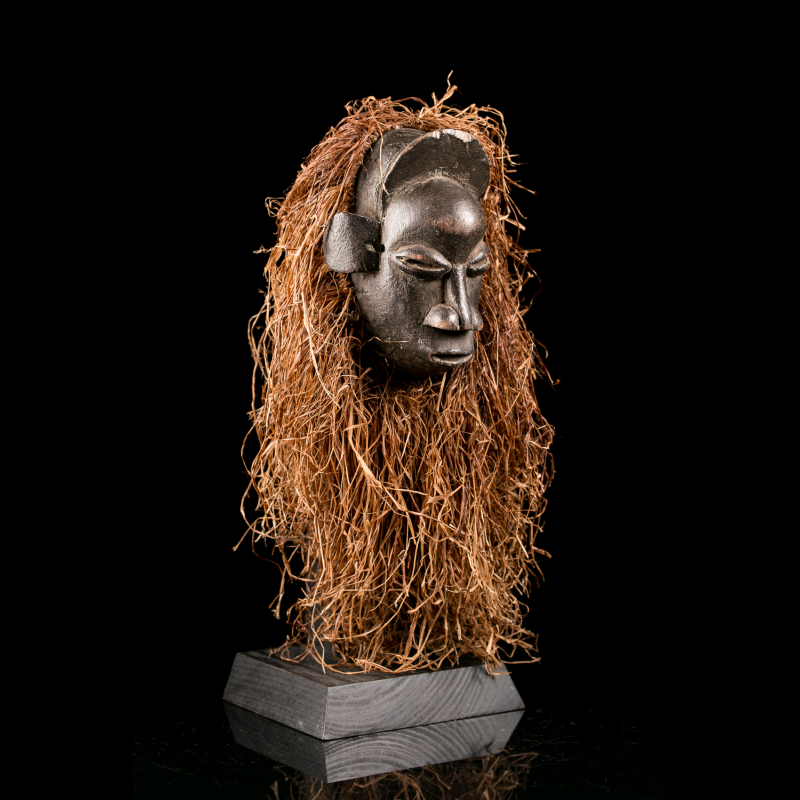




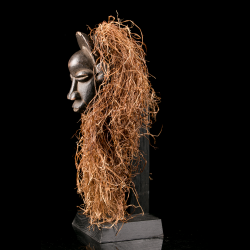



The Nkanu, an ethnic group in the Democratic Republic of Congo, are known for their rich tribal art closely linked to male initiation rituals, including Mukanda.
This ancient rite, practiced over a wide geographical area, mainly involves boys aged 9 to 15. During this initiation, various objects are used, often carved by former initiates, illustrating the ethnographic richness of this tradition.
Notable traditional African objects of the Nkanu include masks and wooden sculptures, often decorated with sometimes bright pigments.
Mukanda is a male initiation rite practiced by several ethnic groups in Central Africa, including the Nkanu, Pende and Chokwe.
This ritual marks the boys' transition to adulthood and involves several key phases.
The boys are first separated from their community and taken to an isolated camp in the bush. This period, symbolizes a "death" followed by a "rebirth" as adults.
During this retreat, initiates undergo circumcision and receive a comprehensive education that includes practical skills, cultural knowledge, teachings on sexuality and the social values of their community.
This rare small mask was used as part of the teaching of these values. It was not intended to be worn on the face due to its size, but rather used in the hand.
A central aspect of Mukanda is the use of masks that embody ancestral spirits and cultural archetypes.
These masks are worn by dancers during public ceremonies, especially at the end of the initiation period, to mark the reintegration of young men into society. Each mask has a specific meaning and plays a particular role in the rituals.
Data sheet
You might also like

The Nkanu, an ethnic group in the Democratic Republic of Congo, are known for their rich tribal art closely linked to male initiation rituals, including Mukanda.
This ancient rite, practiced over a wide geographical area, mainly involves boys aged 9 to 15. During this initiation, various objects are used, often carved by former initiates, illustrating the ethnographic richness of this tradition.
Notable traditional African objects of the Nkanu include masks and wooden sculptures, often decorated with sometimes bright pigments.
Mukanda is a male initiation rite practiced by several ethnic groups in Central Africa, including the Nkanu, Pende and Chokwe.
This ritual marks the boys' transition to adulthood and involves several key phases.
The boys are first separated from their community and taken to an isolated camp in the bush. This period, symbolizes a "death" followed by a "rebirth" as adults.
During this retreat, initiates undergo circumcision and receive a comprehensive education that includes practical skills, cultural knowledge, teachings on sexuality and the social values of their community.
This rare small mask was used as part of the teaching of these values. It was not intended to be worn on the face due to its size, but rather used in the hand.
A central aspect of Mukanda is the use of masks that embody ancestral spirits and cultural archetypes.
These masks are worn by dancers during public ceremonies, especially at the end of the initiation period, to mark the reintegration of young men into society. Each mask has a specific meaning and plays a particular role in the rituals.
